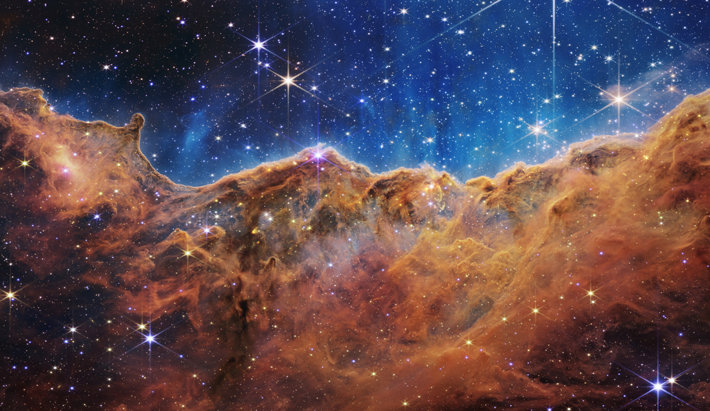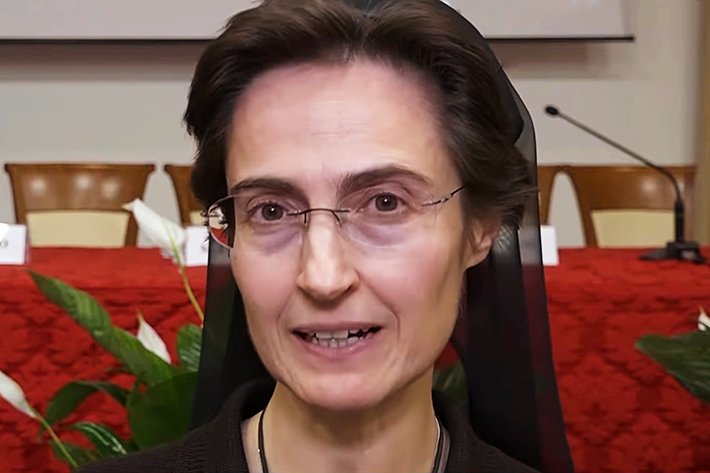Stunning images released by NASA of gigantic stars in our Milky Way and a cluster of galaxies far beyond are “food for the human spirit,” says a Vatican astronomer, highlighting the Catholic Church’s centuries-long history of scientifically probing the universe.

The photographs, released July 12, were taken by the James Webb Space Telescope, the largest and most powerful space observatory ever launched. Besides distant galaxies, the images show the Carina Nebula, one of the largest and brightest cosmic expanses where stars are born.
“This is God’s creation being revealed to us, and in it we can see both his astonishing power and his love of beauty,” said Guy Consolmagno, a Jesuit priest who is the director of Specola Vaticana, a Vatican space observatory established in the late 16th-century.
Besides functioning as the astronomical and scientific research center of the Catholic Church, the observatory also runs the Vatican Advanced Technology Telescope, located on Mt. Graham, a 10,720-foot peak that is the highest mountain in Arizona.
“The science behind this telescope is our attempt to use our God-given intelligence to understand the logic of the universe,” Consolmagno added in a statement he issued July 14. “The universe wouldn’t work if it weren’t logical. But as these images show, the universe is not only logical, it is also beautiful.”
Because “astronomy is a small field,” said Consolmagno, he knows many of the scientists who helped build the Webb telescope and guide its observations.
“I know how long and how hard they and their colleagues have worked to make this incredible machine work,” he said. “It is a tribute to the power of the human spirit, what we can do when we work together. And at the same time, I am amazed and grateful that God has given us humans, his creation, the ability to see and understand what he has done.”
Reflecting on the telescope’s first detailed measurement of water vapor in the atmosphere of a planet beyond our solar system, Consolmagno was reminded of the astronomical feat performed by Angelo Secchi, one of his Jesuit brothers who was also a scientist.
About a century and a half ago, Consolmagno explained, Secchi recorded the first spectral measurements of the atmospheres of planets in our solar system by placing a prism in front of a telescope lens on the roof of the Saint Ignatius Church in Rome.
“I can only imagine how delighted he would be to see the science he pioneered applied to planets unknown to him orbiting distant stars,” Consolmagno said.
Specola Vaticana collaborates with a range of institutions and organizations around the world to advance the understanding of space. Every year, the Vatican Observatory Summer Schools runs an intensive four-day course, where students learn from leading scientists in the field of astronomy.
The program’s faculty includes George and Marcia Reike, a husband-and-wife team of professors at the University of Arizona who led the development of one of the most powerful infrared cameras in the Webb telescope.
One of the program’s former students is Heino Falcke, a German expert on black holes and cosmic particles who was part of the team that captured the first image of a black hole. A lifelong Christian, Falcke wrote in his 2021 book, Light in the Darkness: The Black Hole, the Universe and Us, that he wants to “encourage people to dare to think about God again—people who are also in science.”
Following the release of the Webb telescope images, Consolmagno quoted a passage from Psalm 8 of the Bible, highlighting the wonder of the cosmos. The extract was also tweeted by a Jesuit priest, James Martin, shortly after the images were revealed:
“When I look at your heavens,
the work of your fingers,
the moon and the stars that you have established;
what are humans that you are mindful of them,
mortals that you care for them?”
_______________
From its beginnings, the Church of Scientology has recognized that freedom of religion is a fundamental human right. In a world where conflicts are often traceable to intolerance of others’ religious beliefs and practices, the Church has, for more than 50 years, made the preservation of religious liberty an overriding concern.
The Church publishes this blog to help create a better understanding of the freedom of religion and belief and provide news on religious freedom and issues affecting this freedom around the world.
The Founder of the Scientology religion is L. Ron Hubbard and Mr. David Miscavige is the religion’s ecclesiastical leader.
For more information visit the Scientology website or Scientology Network.


